#On memory
Explore tagged Tumblr posts
Text

b ferguson, from "Parkside & Ocean", You Are Here: Poetry in the Natural World
3K notes
·
View notes
Text
















On Grief
or, On the Best Friend You Met in Middle School who will Never Graduate College
giuliano macca / wendell berry / janice / kate elizabeth russell / langston hughes / benjamin alrie saenz / gustav klimt / @ whitealbum / @ robertszombie / beau taplin / stephen king / theodor kittelsen / @ nebulaahh / arch budzar (taylor swift) / @ inanotherunivrse / unknown / @ nebulaahh
#i compiled this while sobbing on the floor of a hotel bathroom#i made my original post and broke down#then realized other people have probably said these things too#and when we have pain we can share it so maybe that sharing can hold someone else who is sobbing on a bathroom floor too#on grief#on death#on loss#on friendship#on memory#on forgetting#web weaving#web weave#poetry#g <3
806 notes
·
View notes
Text

haiku #23, tathev simonyan
887 notes
·
View notes
Text
I have noticed that when all the lights are on, people tend to talk about what they are doing — their outer lives. Sitting round in candlelight or firelight, people start to talk about how they are feeling – their inner lives.
To sit alone without any electric light is curiously creative. I have my best ideas at dawn or at nightfall, but not if I switch on the lights — then I start thinking about projects, deadlines, demands, and the shadows and shapes of the house become objects, not suggestions, things that need to done, not a background to thought.
-JEANETTE WINTERSON, Why I Adore the Night
#books and libraries#on love#web weaving#words#ocean vuong#on memory#margaret atwood#word webs#quotes#book quotes#nostalgia#grief#compilations
540 notes
·
View notes
Text



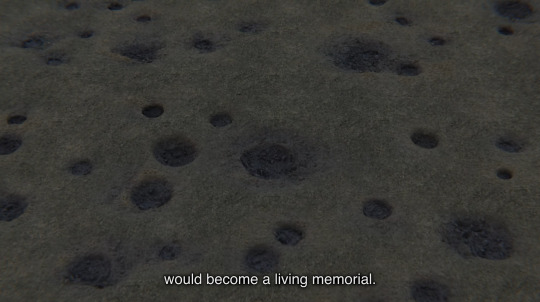
Katya Buchatska, This World is Recording, 2022, Ukraine
405 notes
·
View notes
Text








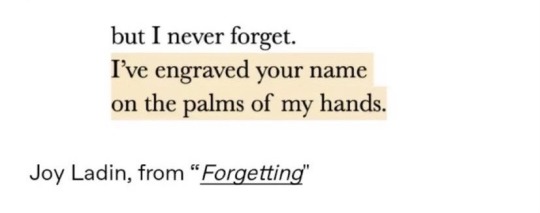
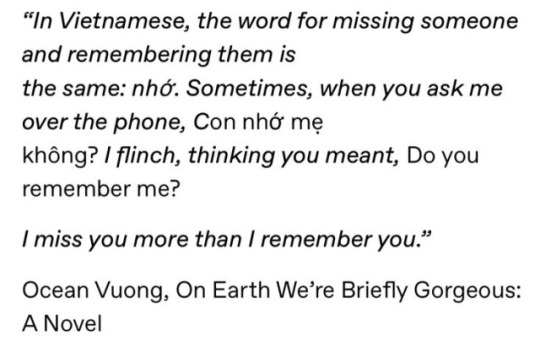
I guess some things you can never leave behind, they don’t belong to the past. They belong to you :,)
#web weaving#words#quotes#webweaving#poetry compilation#on love#poetry#web weave#poem#on memory#on memories#on remembering#on missing someone#on loss
6K notes
·
View notes
Text
First the world is this way, and then it is not. You try to put it back. You reconstruct from memory. You make do with what’s at hand. You ignore the obvious discrepancies.
Anne de Marcken, from The Accident
505 notes
·
View notes
Text
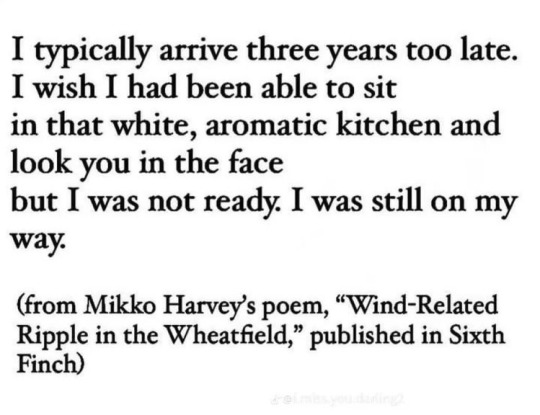



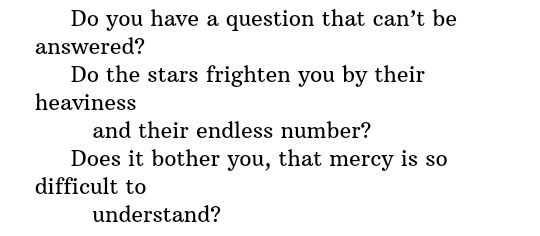


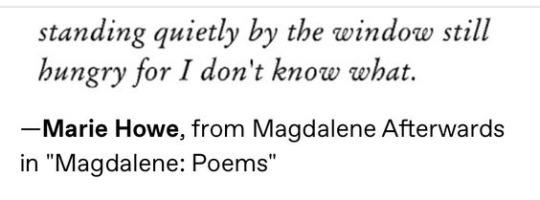
Mikko Harvey Wind-Related in the Wheatfield // Jonny Bolduc open question @jovialtorchlight // Cheryl Strayed Tiny Beautiful Things // @/mkpoet (instagram) // Mary Oliver Count the Roses // Phoebe Bridgers Waiting Room // Fyodor Dostoyevsky // Marie Howe Magdalene Afterwards; "Magdalene: Poems"
#idk what to call this#on self#on memory#on regret#web weave#web weaving#poetry parallels#poetry compilation#mikko harvey#wind related in the wheatfield#cheryl strayed#tiny beautiful things#mary oliver#count the roses#phoebe bridgers#waiting room#fyodor dostoevsky#marie howe#magdalene afterwards#writing#poem#spilled poetry#words#spilled thoughts#dark academia poetry#poetry#dark academia#dark academia quote#spilled ink
6K notes
·
View notes
Text


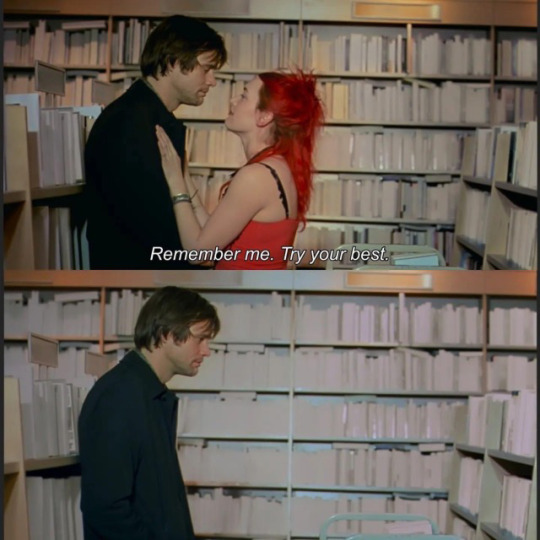



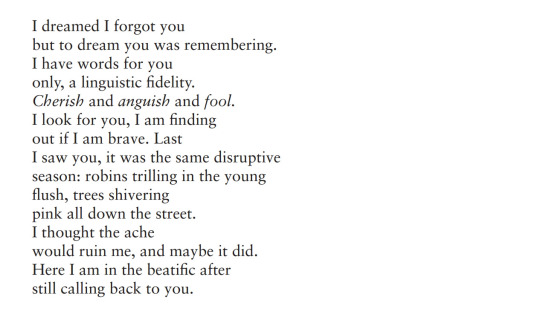




unknown / ocean vuong / eternal sunshine of the spotless mind / taylor swift / rene magritte / ashe vernon / leila chatti / chris marker / the 1975 / taylor swift / anne sexton
#i just made this. its about. something#caroline speaks#web weaving#on memory#on love#on remembering#on forgetting
196 notes
·
View notes
Text
When we observe the involuntary memories that shock consciousness into introspection, what is consistent throughout is that they have arisen from the spirit of negation, whereby the disparity between the past and present has severed violently. [ . . . ] The memory hangs in a sphere of inquietude, unable to find solace in absent reflection, and so obliged to announce itself unexpectedly upon consciousness. Because of this disparity between the encapsulation of memory and the fluidity of time, we speak of consciousness as "haunted."
Dylan Trigg, The Aesthetics of Decay: Nothingness, Nostalgia, and the Absence of Reason
131 notes
·
View notes
Text
Nothing can be forgotten. Nothing can be lost. The universe itself is one vast memory system. Look back and you will find the beginnings of the world.
—Jeanette Winterson, Lighthousekeeping
736 notes
·
View notes
Text

Emily Harman, "Tender, the Bruise"
1K notes
·
View notes
Text




Long Day’s Journey into Night '地球最后的夜晚' (2018) dir. Bi Gan
150 notes
·
View notes
Text

Swann’s Way, Marcel Proust (tr. C. K. Moncrieff and Terence Kilmartin)
#this book is going to ruin me#quotes#literature#classic literature#translated literature#marcel proust#swann's way#on memory#in search of lost time
267 notes
·
View notes
Text
For the interested reader, diaries and notebooks can be placed in two categories: in the first the text is intended to be official, manifest, aimed at a readership. The notebook becomes a training ground for the outward self, and, as in the case of the nineteenth-century artist and diarist Marie Bashkirtseff, an open declaration, an unending monologue, addressed to an invisible but sympathetic ear. Still I’m fascinated by the other sort of diary, the working tool, the sort the writer-as-craftsperson keeps close at hand, of little apparent use to the outsider. Susan Sontag, who practised this art form for decades, said of her diary that it was ‘an instrument, a tool’ – I’m not sure this is entirely apt. Sontag’s notebooks (and the notebooks of other writers) are not just for the storage of ideas, like nuts in squirrels’ cheeks, to be consumed later. Nor are they filled with quick outlines of events, to be recollected when needed. Notebooks are an essential daily activity for a certain type of person, loose-woven mesh on which they hang their clinging faith in reality and its continuing nature. Such texts have only one reader in mind, but this reader is utterly implicated. Break open a notebook at any point and be reminded of your own reality, because a notebook is a series of proofs that life has continuity and history, and (this is most important) that any point in your own past is still within your reach. Sontag’s notebooks are filled with such proofs: lists of films she has seen, books she has read, words that have charmed her, the dried husks of completed endeavours – and these are largely limited to the notebooks; they almost never feed into her books or films or articles, they are neither the starting point, nor the underpinning for her public work. They are not intended as explanations for another reader (perhaps for the self, although they are scribbled down at such a lick that sometimes it’s hard to make out what is meant). Like a fridge, or as it was once called, an ice house, a place where the fast-corrupting memory-product can be stored, a space for witness accounts and affirmations, or the material and outward signs of immaterial and elusive relations, to paraphrase Goncharov.
—Maria Stepanova, In Memory of Memory, tr. Sasha Dugdale (emphasis mine)
#maria stepanova#sasha dugdale#in memory of memory#susan sontag#words#mine#2024 reads#women in translation#on memory
211 notes
·
View notes